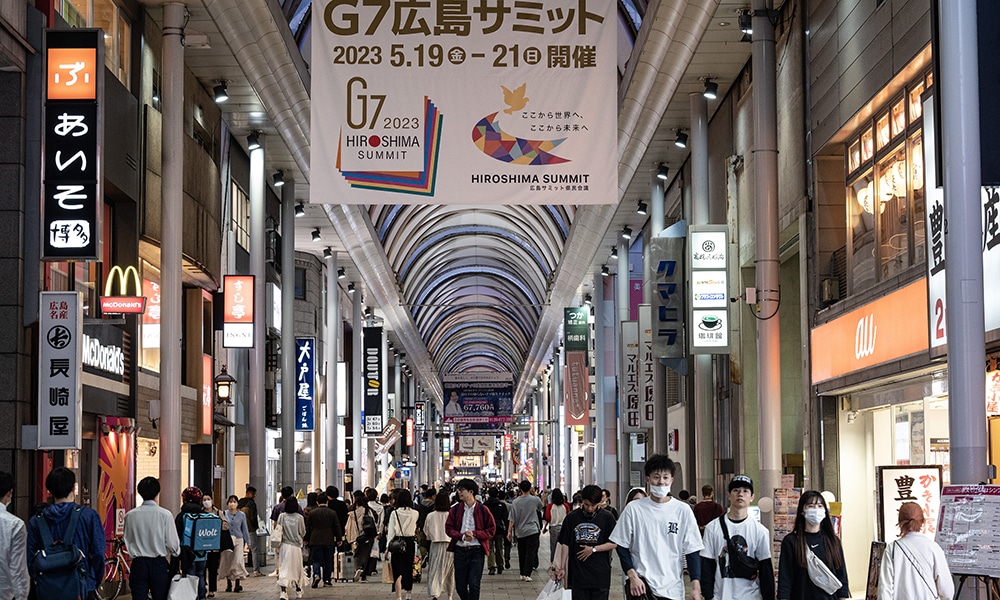TOKYO: G7 leaders meet in Hiroshima this week looking to tighten the screws further on Russia over the Ukraine war and agree a united line on China’s growing military and economic power. The three-day summit of leading developed democracies will cover everything from energy to AI, but a key focus will be targeting those who have helped Moscow blunt the impact of Western-led sanctions.
The leaders will also chart a careful course on Beijing, projecting unity on Taiwan and emphasizing the need to “de-risk” crucial supply chains by diversifying away from China, while also attempting to avoid further inflaming tensions. Last month’s G7 foreign ministers’ meeting, seen as setting the stage for the Hiroshima talks, put Beijing on notice over “militarization activities” in the South China Sea.
It also insisted there was “no change” on Taiwan policy after French President Emmanuel Macron, following a trip to Beijing last month, said Europe should avoid “crises that aren’t ours”.
Ministers warned Beijing on everything from its nuclear arsenal to its business practices, and this week’s summit is expected to endorse extracting crucial supply chains from Chinese influence. Washington has taken an aggressive approach, blocking China’s access to the most advanced semiconductors and the equipment to make them, and has convinced Japan and the Netherlands to follow suit.
But “this G7 is not an anti-Chinese G7,” an adviser to Macron told journalists before the summit. “We have a positive message for China which is that we are ready to cooperate on condition that we negotiate together,” the adviser added. European Commission President Ursula von der Leyen also this week said the bloc seeks a “multifaceted approach to our economic relationships with China,” characterized by “de-risking, and not decoupling.”
‘Vulnerable to coercion’
“We are most vulnerable to coercion... where dependencies build up. That’s why we are taking action,” she added, calling critical raw materials one area for work. Europe has already enraged Beijing by proposing to restrict exports of sensitive tech to eight Chinese firms suspected of shipping it on to Russia. And the Hiroshima summit is expected to push for similar actions to help close gaps in the sanctions regime G7 countries have imposed on Russia. Countries are keen to ensure that “sanctions that we have imposed, which have a cost for our economies, are not simply circumvented to the benefit of others,” the French official said.
Ukrainian President Volodymyr Zelensky, who has been touring European capitals before an expecting new offensive, will address the bloc by video. The G7 groups Japan, Britain, the United States, Canada, France, Germany, Italy and the European Union. —AFP











